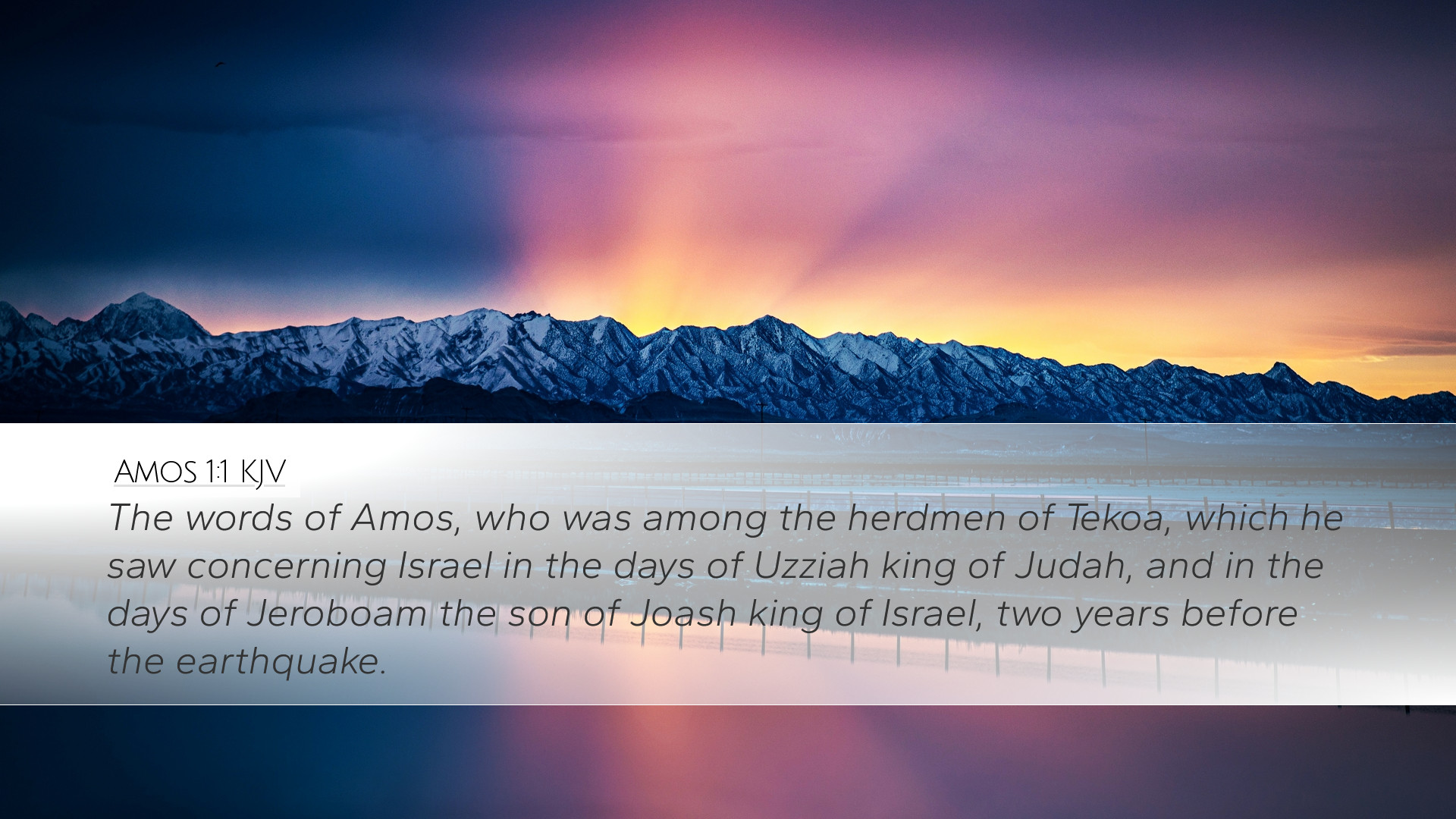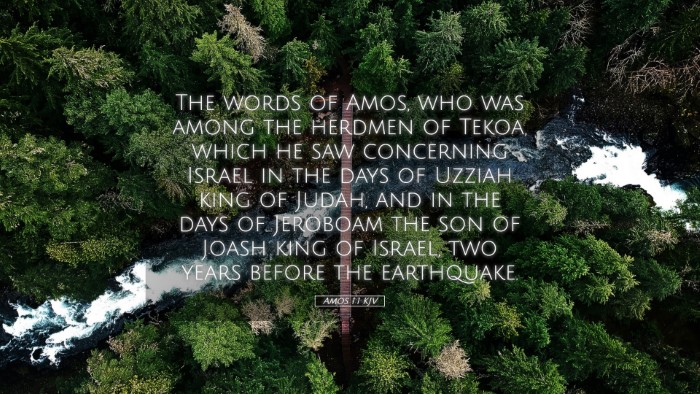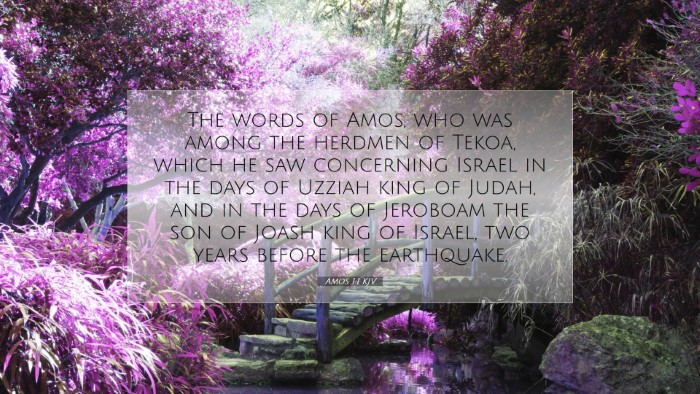Old Testament
Genesis Exodus Leviticus Numbers Deuteronomy Joshua Judges Ruth 1 Samuel 2 Samuel 1 Kings 2 Kings 1 Chronicles 2 Chronicles Ezra Nehemiah Esther Job Psalms Proverbs Ecclesiastes Song of Solomon Isaiah Jeremiah Lamentations Ezekiel Daniel Hosea Joel Amos Obadiah Jonah Micah Nahum Habakkuk Zephaniah Haggai Zechariah MalachiAmos 1:1
Amos 1:1 KJV
The words of Amos, who was among the herdmen of Tekoa, which he saw concerning Israel in the days of Uzziah king of Judah, and in the days of Jeroboam the son of Joash king of Israel, two years before the earthquake.
Amos 1:1 Bible Commentary
Commentary on Amos 1:1
Verse: "The words of Amos, who was among the shepherds of Tekoa, which he saw concerning Israel in the days of Uzziah king of Judah, and in the days of Jeroboam the son of Joash, king of Israel, two years before the earthquake." (Amos 1:1)
Introduction
The book of Amos is a key prophetic text in the Old Testament that delivers a powerful message of judgment, hope, and justice. Amos, though a shepherd by trade, was called by God to prophesy to the northern kingdom of Israel during a time of prosperity but moral decay. This opening verse provides critical insights into the identity of Amos, the context of his message, and the divine authority behind his prophecy.
Contextual Analysis
Amos lived in a turbulent period marked by political stability yet profound spiritual and ethical corruption. The mention of two kings establishes a timeline for Amos’s prophecy:
- Uzziah king of Judah: His reign (c. 792-740 BC) was characterized by military success and economic prosperity.
- Jeroboam II king of Israel: This era (c. 786-746 BC) saw Israel expanding its borders and enjoying wealth, yet internally it faced significant moral decline.
Amos’s Background
Amos identifies himself as a shepherd, which carries implications of humility and divine selection for prophetic ministry. Matthew Henry states that God often chooses the lowly and humble to confound the wise. This theme resonates with the broader biblical idea that God's wisdom is not contingent upon worldly standards (1 Corinthians 1:27).
Spiritual Significance of Shepherding
The role of shepherd evokes imagery of care, guidance, and responsibility for the flock. This points towards Amos's mission to address the moral and social injustices facing the people of Israel. Adam Clarke elaborates that a shepherd's heart aligns with God's character, demonstrating that Amos was called to be both a protector and a reprover.
Visions and Revelations
Amos declares "which he saw concerning Israel," highlighting that his prophecies are rooted in divinely-inspired visions. Albert Barnes emphasizes that true prophets are those who have seen the Lord's glory and who bear witness to the moral truths revealed to them.
The Great Earthquake
The reference to "two years before the earthquake" is significant in establishing the urgency of Amos's message. While the specific earthquake is not named, it signifies a historical event that likely resonated with the audience. Matthew Henry mentions that such disasters serve as reminders of divine judgment and should lead to repentance.
Thematic Implications
The opening verse of Amos sets the stage for themes that permeate the entire book:
- Divine Judgment: Amos warns of impending judgment against nations due to their transgressions. The use of visions affirms the seriousness of his message.
- Social Justice: Amos’s prophetic voice cries out against social injustices, compelling the people of Israel to align their practices with God's righteousness.
- Call to Repentance: The underlying call is for Israel to turn back to God before judgment befalls them, emphasizing the potential for mercy amidst the warning of doom.
Conclusion
Amos 1:1 serves as a profound introduction to the themes of the entire prophetic book. It challenges pastors, theologians, and scholars alike to reflect on God's choice of unlikely messengers and the ethical implications of his message. It invites a deeper spiritual introspection about justice, the nature of prophetic authority, and the necessity of heeding divine warnings in our contemporary context.
As we digest the weight of Amos's words, it is essential to acknowledge that God's call to righteousness remains as relevant today as it was in the time of ancient Israel. The message of Amos inspires a renewed commitment to social justice and integrity in the life of the church and the world.


